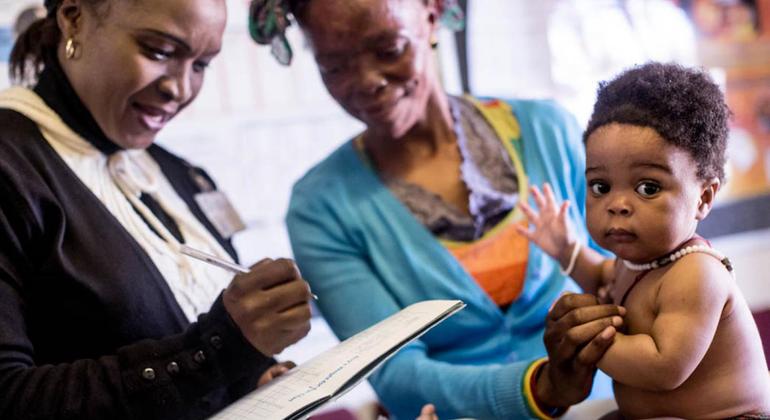The World Health Organization announced the good news after examining life expectancy data among the 47 countries that make up the WHO African Region from 2000 to 2019, as part of a continent-wide report into progress on healthcare access for all – a key SDG target.
“This rise is greater than in any other region of the world during the same period,” the WHO said, before warning that the negative impact of the COVID-19 pandemic could threaten “these huge gains”.
Healthier for longer
According to the UN agency’s report, Tracking Universal Health Coverage in the WHO African Region 2022, life-expectancy on the continent has increased to 56 years, compared with 46 at the turn of the century.
“While still well below the global average of 64, over the same period, global healthy life expectancy increased by only five years,” it explained.
The continent’s health ministries should be credited for their “drive” to improve health and wellbeing among populations, said Dr. Matshidiso Moeti, WHO Regional Director for Africa.
In particular, the continent has benefited from better access to essential health services – up from 24 per cent in 2000 to 46 per cent in 2019 – along with gains in reproductive, maternal, newborn and child health.
Benefits of tackling disease
Considerable progress against infectious diseases has also contributed to longer life expectancy, WHO said, pointing to the rapid scale-up of HIV, tuberculosis, and malaria control measures from 2005.
Despite these welcome initiatives in preventing and treating infectious diseases, the UN agency cautioned that these gains had been offset by a “dramatic” rise in hypertension, diabetes and other noncommunicable diseases, in addition to the lack of health services targeting these diseases.
“People are living healthier, longer lives, with fewer threats of infectious diseases and with better access to care and disease prevention services,” said Dr. Moeti.
“But the progress must not stall. Unless countries enhance measures against the threat of cancer and other noncommunicable diseases, the health gains could be jeopardized.”
Resisting next global threat
Ringfencing these precious health gains against the negative impact of COVID-19 – “and the next pathogen to come” – will be crucial, the WHO official insisted, as the UN agency noted that on average, African countries saw greater disruption across essential services, compared with other regions.
In total, more than 90 per cent of the 36 countries that responded to the 2021 WHO survey reported one or more disruptions to essential health services, with immunization, neglected tropical diseases and nutrition services most badly affected.
“It is crucial for governments to step up public health financing,” WHO insisted, adding that most governments in Africa fund less than 50 per cent of their national health budgets, resulting in large funding gaps. “Only Algeria, Botswana, Cabo Verde, Eswatini, Gabon, Seychelles and South Africa” fund more than half of their health expenditure, it noted.
One of WHO’s top recommendations to all governments looking to boost healthcare access is for them to reduce “catastrophic” household expenditure on medicines and consultations.
Households that spend more than 10 per cent of their income on health fall into the “catastrophic” category. Over the past 20 years, out-of-pocket expenditure has stagnated or increased in 15 African countries.



